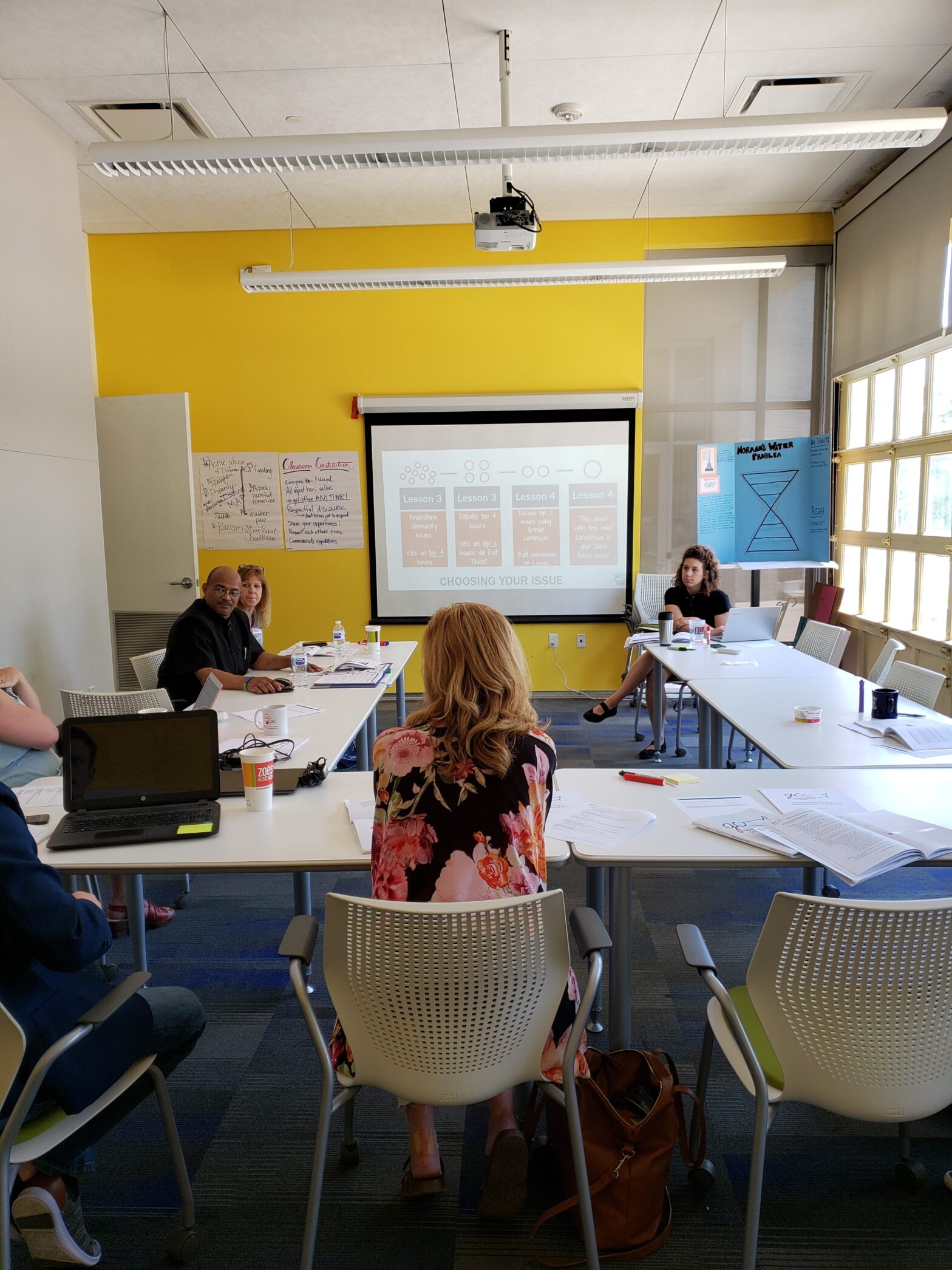How we can get the most out of Professional Development that values teachers as the professionals they are
By Lily Macias, Summer Program Fellow at Generation Citizen Oklahoma
Remember those days in school when you had a substitute teacher, or maybe a late start, early release, or even an entire day off, because your teachers were busy with “professional development?” To students, it’s often a break from the daily grind. Those hours or days that teachers spend focused on professional development (PD), however, are more important to a student’s education than any one hour or day of class, for they can impact and strengthen a teacher’s entire approach. It’s important to note, then, that not all PD is created equal.
In order to create a real impact within student learning and teacher development, high-quality teacher professional development (HQ PD) is vital to integrate into every school district. HQ PD is training that goes beyond “one-size-fits-all presentations” and includes professional learning activities that are part of a comprehensive program of ongoing development. It often takes place in a workshop setting where teachers are encouraged to actively participate instead of a traditional lecture. The five pillars of success for HQ PD have been identified as:
1) alignment with the school goals,
2) focus on the modeling strategy and core content,
3) collaboration within the teachers and staff,
4) constant follow-up and feedback, and
5) inclusion of active learning opportunities (DeMonte 6).
High-quality PD, with these five elements present, is necessary to help teachers and students reach their full potential, but far too often teachers spend their time away from students in PD sessions that fall short.
There are many barriers that stand in the way of accomplishing these goals and giving every teacher the HQ PD they deserve. Two major obstacles prevalent in every school district are time and money. With a decade of reduced state budgets, districts have not been able to give HQ PD to teachers in many years. However, these obstacles are more present in low-income and under-resourced schools. One way to resolve the issue of insufficient time could be incorporating PD in small increments during the regular workday instead of during the summer. This way teachers have the opportunity to integrate these ideas into the school day more often and see the impact of the PD promptly (Mizell 14). This would also allow teachers to collaborate with each other during the day; tightening relationships and encouraging the sharing of resources. Nevertheless, while this is a potential solution for some districts, we cannot predict this will eliminate the obstacles for HQ PD in low-income districts.
We must also recognize that it is significantly more difficult to find funding to support HQ PD for teachers in Social Sciences than it is for those in STEM subjects. Social Studies is noticeably absent from important standardized tests such as the ACT or SAT, and is seen as ‘less important’ than other subjects while also discouraging further development for Social Studies teachers. However, organizations like Generation Citizen (GC) see the value in HQ PD for every subject.
GC is committed to robust PD for educators because student outcomes improve when teachers are respected as professionals. The national emphasis on high-stakes testing and Oklahoma’ssubsequent de-emphasis of Social Studies can leave Social Studies teachers with limited options to fulfill its education goals, and the situation is similar in states around the country. By investing in HQ PD for the teachers with whom we work, GC aims to provide broader support for the ecosystems of public education that we would achieve simply by supporting teachers in the logistics of an Action Civics project. We know that student learning is improved when teachers have access to pedagogical frameworks, instructional strategies, curricular resources, and a cohort of fellow teachers working toward the same goals. The more empowered teachers feel to provide high-quality civic learning opportunities to students, the more students will experience hands-on learning about how to participate effectively in the life of their community. Providing HQ PD puts GC on strong footing from which to support equitable access to meaningful civic learning that shrinks the civic empowerment gap.
HQ PD has the capacity to create two major areas of impact: student learning and teacher development. Educators are given the opportunity to continue evolving their skills and adapt to new ideas and lessons while students are empowered to reach their educational goals. Although there are obstacles that stand in the way of ensuring that every teacher may receive these opportunities, there are approaches that are worth investing energy in, and as experience has shown, it often starts with acknowledging the opportunity to do better and demanding more.
Generation Citizen is a nonpartisan, 501(c)3 tax exempt organization which does not endorse candidates; our goal is to engage our staff, participants, and stakeholders in political and civic action on issues that matter to them personally and in their communities. The opinions expressed in this blog post are those of the writer alone and do not reflect the opinions of Generation Citizen.
